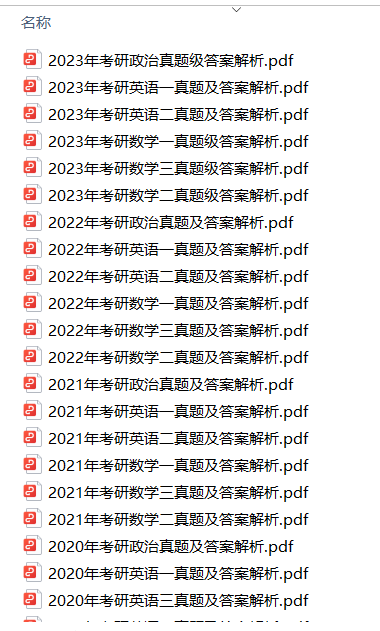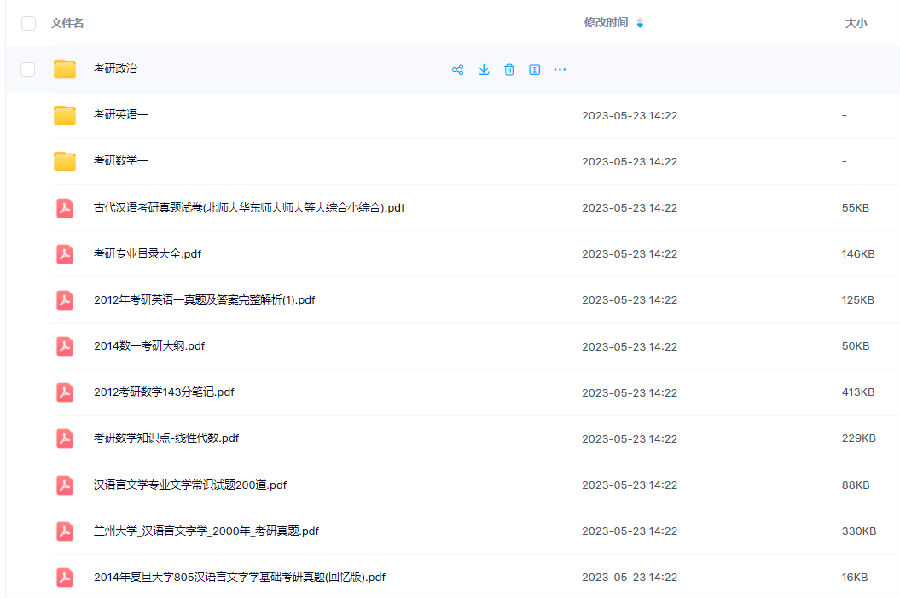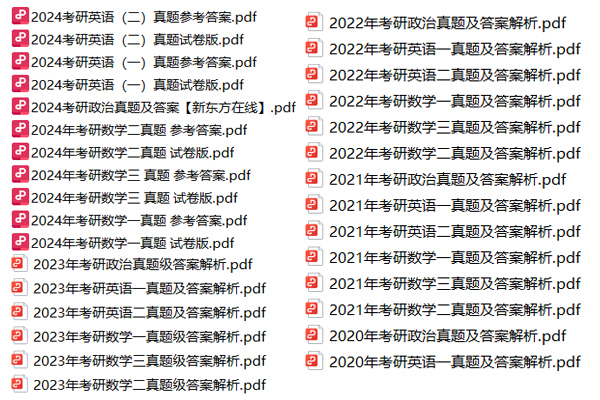特惠-26考研冲刺
特惠-27考研课
双证-在职硕士
免联考-同等学力
复试分数线
26复试全面指导
模拟复试面试
26考研-全套真题
26考研估分
保研-路线图
27考研-智能择校
27考研-英语测评
27考研-新大纲对比
热门-计算机择校

扫码加入训练营
牢记核心词
学习得礼盒
2018考研英语(一)考试已经结束,你押中考题了没?有没有遇到特别难的?新东方在线考研频道发布2018年考研英语一真题及答案(网友版),我们一起来看看今年的考题偏不偏。点击领取【2018考研真题解析直播课】。更多2018年考研英语真题答案及解析、考研数学真题答案及解析、考研英语(一)真题答案及解析、管理类联考真题答案及解析、考研专业课真题答案及解析,请关注【2018考研真题答案及解析】专题!
| 2018考研真题答案及解析(免费领直播课) | |||
| 公共课 | 政治 | 英语一 | 英语二 |
| 数学一 | 数学二 | 数学三 | |
| 专业课 | 管理类联考 | 西医综合 | 中医综合 |
| 法硕 | 公外日语 | 计算机 | |
| 教育学 | 历史学 | 心理学 | |
| 经济学 | 经济类联考 | 二外日语 | |
| 2018考研真题答案word下载 | |||
2018年考研英语一真题及答案(网友版)
Section I Use of English
Directions:
Read the following text。 Choose the best word (s) for each numbered blank and mark A, B, C or D on the ANSWER SHEET。 (10 points)
Trust is a tricky business。 On the one hand, it‘s a necessary condition 1 many worthwhile things: child care, friendships, etc。 On the other hand, putting your 2, in the wrong place often carries a high 3。
4, why do we trust at all? Well, because it feels good。 5 people place their trust in an individual or an institution, their brains release oxytocin, a hormone that 6 pleasurable feelings and triggers the herding instruct that prompts humans to 7 with one another。 Scientists have found that exposure 8 this hormone puts us in a trusting 9: In a Swiss study, researchers sprayed oxytocin into the noses of half the subjects; those subjects were ready to lend significantly higher amounts of money to strangers than were their 10 who inhaled something else。
11 for us, we also have a sixth sense for dishonesty that may 12 us。 A Canadian study found that children as young as 14 months can differentiate 13 a credible person and a dishonest one。 Sixty toddlers were each 14 to an adult tester holding a plastic container。 The tester would ask, “What’s in here?” before looking into the container, smiling, and exclaiming, “Wow!” Each subject was then invited to look 15。 Half of them found a toy; the other half 16 the container was empty-and realized the tester had 17 them。
Among the children who had not been tricked, the majority were 18 to cooperate with the tester in learning a new skill, demonstrating that they trusted his leadership。 19, only five of the 30 children paired with the “20”tester participated in a follow-up activity。
1。 [A] on [B] like [C] for [D] from
2。 [A] faith [B] concern [C] attention [D] interest
3。 [A] benefit [B] debt [C] hope [D] price
4。 [A] Therefore [B] Then [C] Instead [D] Again
5。 [A]Until [B] Unless [C] Although [D] When
6。 [A] selects [B] produces [C] applies [D] maintains
7。 [A] consult [B] compete [C] connect [D] compare
8。 [A] at [B] by [C]of [D]to
9。 [A] context [B] mood [C] period [D] circle
10。[A] counterparts [B] substitutes [C] colleagues [D]supporters
11。[A] Funny [B] Lucky [C] Odd [D] Ironic
12。[A] monitor [B] protect [C] surprise [D] delight
13。[A] between [B] within [C] toward [D] over
14。[A] transferred [B] added [C] introduced [D] entrusted
15。[A] out [B] back [C] around [D] inside
16。[A] discovered [B] proved [C] insisted [D] 。remembered
17。[A] betrayed [B]wronged [C] fooled [D] mocked
18。[A] forced [B] willing [C] hesitant [D] entitled
19。[A] In contrast [B] As a result [C] On the whole [D] For instance
20。[A] inflexible [B] incapable [C] unreliable [D] unsuitable
Section II Reading Comprehension
Part A
Directions:
Read the following four texts。 Answer the questions below each text by choosing A, B, C or D。 Mark your answers on the ANSWER SHEET。 (40 points)
Text 1
Among the annoying challenges facing the middle class is one that will probably go unmentioned in the next presidential campaign: What happens when the robots come for their jobs?
Don‘t dismiss that possibility entirely。 About half of U.S。 jobs are at high risk of being automated, according to a University of Oxford study, with the middle class disproportionately squeezed。 Lower-income jobs like gardening or day care don’t appeal to robots。 But many middle-class occupations-trucking, financial advice, software engineering — have aroused their interest, or soon will。 The rich own the robots, so they will be fine。
This isn‘t to be alarmist。 Optimists point out that technological upheaval has benefited workers in the past。 The Industrial Revolution didn’t go so well for Luddites whose jobs were displaced by mechanized looms, but it eventually raised living standards and created more jobs than it destroyed。 Likewise, automation should eventually boost productivity, stimulate demand by driving down prices, and free workers from hard, boring work。 But in the medium term, middle-class workers may need a lot of help adjusting。
The first step, as Erik Brynjolfsson and Andrew McAfee argue in The Second Machine Age, should be rethinking education and job training。 Curriculums —from grammar school to college- should evolve to focus less on memorizing facts and more on creativity and complex communication。 Vocational schools should do a better job of fostering problem-solving skills and helping students work alongside robots。 Online education can supplement the traditional kind。 It could make extra training and instruction affordable。 Professionals trying to acquire new skills will be able to do so without going into debt。
The challenge of coping with automation underlines the need for the U.S。 to revive its fading business dynamism: Starting new companies must be made easier。 In previous eras of drastic technological change, entrepreneurs smoothed the transition by dreaming up ways to combine labor and machines。 The best uses of 3D printers and virtual reality haven‘t been invented yet。 The U.S。 needs the new companies that will invent them。
Finally, because automation threatens to widen the gap between capital income and labor income, taxes and the safety net will have to be rethought。 Taxes on low-wage labor need to be cut, and wage subsidies such as the earned income tax credit should be expanded: This would boost incomes, encourage work, reward companies for job creation, and reduce inequality。
Technology will improve society in ways big and small over the next few years, yet this will be little comfort to those who find their lives and careers upended by automation。 Destroying the machines that are coming for our jobs would be nuts。 But policies to help workers adapt will be indispensable。
【英语一真题】资料这里有↑↑↑
本文关键字: 2018年考研英语真题 考研英语一答案

 资料下载
资料下载
2014年-2025年考研历年真题汇总
发布时间:2024-04-25扫码添加【考研班主任】
即可领取资料包
考研大纲PDF电子版下载-历年(附解析)
发布时间:2024-04-25扫码添加【考研班主任】
即可领取资料包
2026年考研政数英备考资料zip压缩包
发布时间:2024-04-25扫码添加【考研班主任】
即可领取资料包
考研英语大纲词汇5500打印版(基础必备)
发布时间:2024-04-25扫码添加【考研班主任】
即可领取资料包
新东方在线考试模拟题【12套】
发布时间:2024-04-25扫码添加【考研班主任】
即可领取资料包
2026年考研专业课知识点总结
发布时间:2024-04-25扫码添加【考研班主任】
即可领取资料包
新东方考研资料下载地址
发布时间:2023-05-17新东方在线考研资料合集
下载方式:微信扫码,获取网盘链接

目录:
1.2013-2023年近10年政数英真题及解析PDF版(新东方)
2.2013-2023年专业课考试历年真题及解析PDF版
3.24考研复习备考资料大合集:大纲+备考资料+词汇书+考前押题+自命题
资料介绍:
1.2013-2023年近10年政数英真题及解析PDF版(新东方)
 、
、
2.2013-2023年专业课考试历年真题及解析PDF版


3.24考研复习备考资料大合集

3.24考研复习备考资料:考研大纲

3.24考研复习备考资料:政数英备考资料+自命题真题

------------------
考研备考过程中,尤其是专业课部分,参考往年的考试真题,对于我们的复习有更好的帮助。北京大学考研真题资料都有哪些?小编为大家进行了汇总。
北京大学考研真题资料-公共课

北京大学考研真题资料-专业课


以上就是关于“北京大学考研真题资料下载(历年汇总)”的整理,更多考研资料下载,请关注微信获取下载地址。
2024考研公共课必背知识点汇总
发布时间:2023-01-03扫码添加【考研班主任】
即可领取资料包
2013-2023考研历年真题汇总
发布时间:2023-01-03扫码添加【考研班主任】
即可领取资料包
考研英语大纲词汇(PDF可打印)
发布时间:2023-01-03扫码添加【考研班主任】
即可领取资料包
2024考研专业课知识点总结
发布时间:2023-01-03扫码添加【考研班主任】
即可领取资料包
2023考研政治 内部押题 PDF
发布时间:2022-11-16扫码添加【考研班主任】
即可领取资料包
徐涛:23考研预测六套卷
发布时间:2022-11-16扫码添加【考研班主任】
即可领取资料包
考研政数英冲刺资料最新整理
发布时间:2022-11-16扫码添加【考研班主任】
即可领取资料包
23考研答题卡模板打印版
发布时间:2022-11-16扫码添加【考研班主任】
即可领取资料包
2023考研大纲词汇5500PDF电子版
发布时间:2022-07-28扫码添加【考研班主任】
即可领取资料包
考研历年真题(公共课+专业课)
发布时间:2022-07-28扫码添加【考研班主任】
即可领取资料包
考研英语阅读100篇附解析及答案
发布时间:2022-01-07扫码添加【考研班主任】
即可领取资料包
新东方考研学霸笔记整理(打印版)
发布时间:2022-01-07扫码添加【考研班主任】
即可领取资料包
2001-2021年考研英语真题答案(可打印版)
发布时间:2022-01-07扫码添加【考研班主任】
即可领取资料包
考研英语词汇5500(完整版下载)
发布时间:2022-01-07扫码添加【考研班主任】
即可领取资料包
2022考研政审表模板精选10套
发布时间:2022-01-07扫码添加【考研班主任】
即可领取资料包
历年考研真题及答案 下载
发布时间:2021-12-09扫码添加【考研班主任】
即可领取资料包
考研政审表模板汇总
发布时间:2020-06-17扫码添加【考研班主任】
即可领取资料包
近5年考研英语真题汇总
发布时间:2020-06-17扫码添加【考研班主任】
即可领取资料包
考研英语大纲词汇5500
发布时间:2020-06-17扫码添加【考研班主任】
即可领取资料包
2022考研12大学科专业排名汇总
发布时间:2019-11-21扫码添加【考研班主任】
即可领取资料包
2023考研政治复习备考资料【珍藏版】
发布时间:2019-11-21扫码添加【考研班主任】
即可领取资料包
考研英语万能模板+必备词汇+范文
发布时间:2019-11-21扫码添加【考研班主任】
即可领取资料包
考研数学一、二、三历年真题整理
发布时间:2019-11-21扫码添加【考研班主任】
即可领取资料包

添加班主任领资料
添加考研班主任
免费领取考研历年真题等复习干货资料

 推荐阅读
推荐阅读
2025年考研初试结束后,新东方在线为大家整理了:2025年考研英语一真题及答案解析(完整版),供大家参考,同时也为大家提供了电子版文
2025年考研初试结束后,新东方在线为大家整理了:2025年考研英语一真题及答案解析(电子版下载),供大家参考,同时也为大家提供了电子
2025年考研初试结束后,新东方在线为大家整理了:2025年考研英语一新题型真题答案,供大家参考,同时也为大家提供了电子版文档直接下载
2025年考研初试结束后,新东方在线为大家整理了:2025年考研英语一完形填空真题答案,供大家参考,同时也为大家提供了电子版文档直接下
2025年考研初试结束后,新东方在线为大家整理了:2025年考研英语一翻译真题答案,供大家参考,同时也为大家提供了电子版文档直接下载,

 资料下载
资料下载
扫码添加【考研班主任】
即可领取资料包
扫码添加【考研班主任】
即可领取资料包
扫码添加【考研班主任】
即可领取资料包
扫码添加【考研班主任】
即可领取资料包
扫码添加【考研班主任】
即可领取资料包
扫码添加【考研班主任】
即可领取资料包
新东方在线考研资料合集
下载方式:微信扫码,获取网盘链接

目录:
1.2013-2023年近10年政数英真题及解析PDF版(新东方)
2.2013-2023年专业课考试历年真题及解析PDF版
3.24考研复习备考资料大合集:大纲+备考资料+词汇书+考前押题+自命题
资料介绍:
1.2013-2023年近10年政数英真题及解析PDF版(新东方)
 、
、
2.2013-2023年专业课考试历年真题及解析PDF版


3.24考研复习备考资料大合集

3.24考研复习备考资料:考研大纲

3.24考研复习备考资料:政数英备考资料+自命题真题

------------------
考研备考过程中,尤其是专业课部分,参考往年的考试真题,对于我们的复习有更好的帮助。北京大学考研真题资料都有哪些?小编为大家进行了汇总。
北京大学考研真题资料-公共课

北京大学考研真题资料-专业课


以上就是关于“北京大学考研真题资料下载(历年汇总)”的整理,更多考研资料下载,请关注微信获取下载地址。
扫码添加【考研班主任】
即可领取资料包
扫码添加【考研班主任】
即可领取资料包
扫码添加【考研班主任】
即可领取资料包
扫码添加【考研班主任】
即可领取资料包
扫码添加【考研班主任】
即可领取资料包
扫码添加【考研班主任】
即可领取资料包
扫码添加【考研班主任】
即可领取资料包
扫码添加【考研班主任】
即可领取资料包
扫码添加【考研班主任】
即可领取资料包
扫码添加【考研班主任】
即可领取资料包
扫码添加【考研班主任】
即可领取资料包
扫码添加【考研班主任】
即可领取资料包
扫码添加【考研班主任】
即可领取资料包
扫码添加【考研班主任】
即可领取资料包
扫码添加【考研班主任】
即可领取资料包
扫码添加【考研班主任】
即可领取资料包
扫码添加【考研班主任】
即可领取资料包
扫码添加【考研班主任】
即可领取资料包
扫码添加【考研班主任】
即可领取资料包
扫码添加【考研班主任】
即可领取资料包
扫码添加【考研班主任】
即可领取资料包
扫码添加【考研班主任】
即可领取资料包
扫码添加【考研班主任】
即可领取资料包

 阅读排行榜
阅读排行榜
 相关内容
相关内容